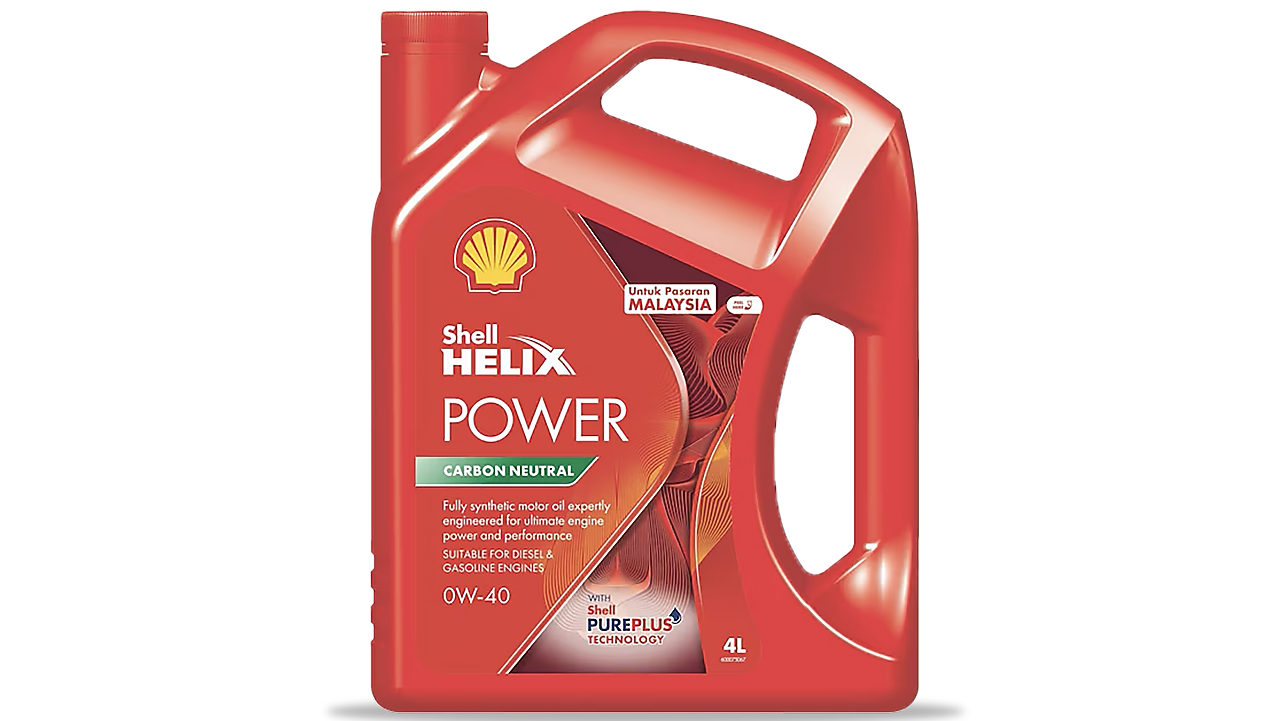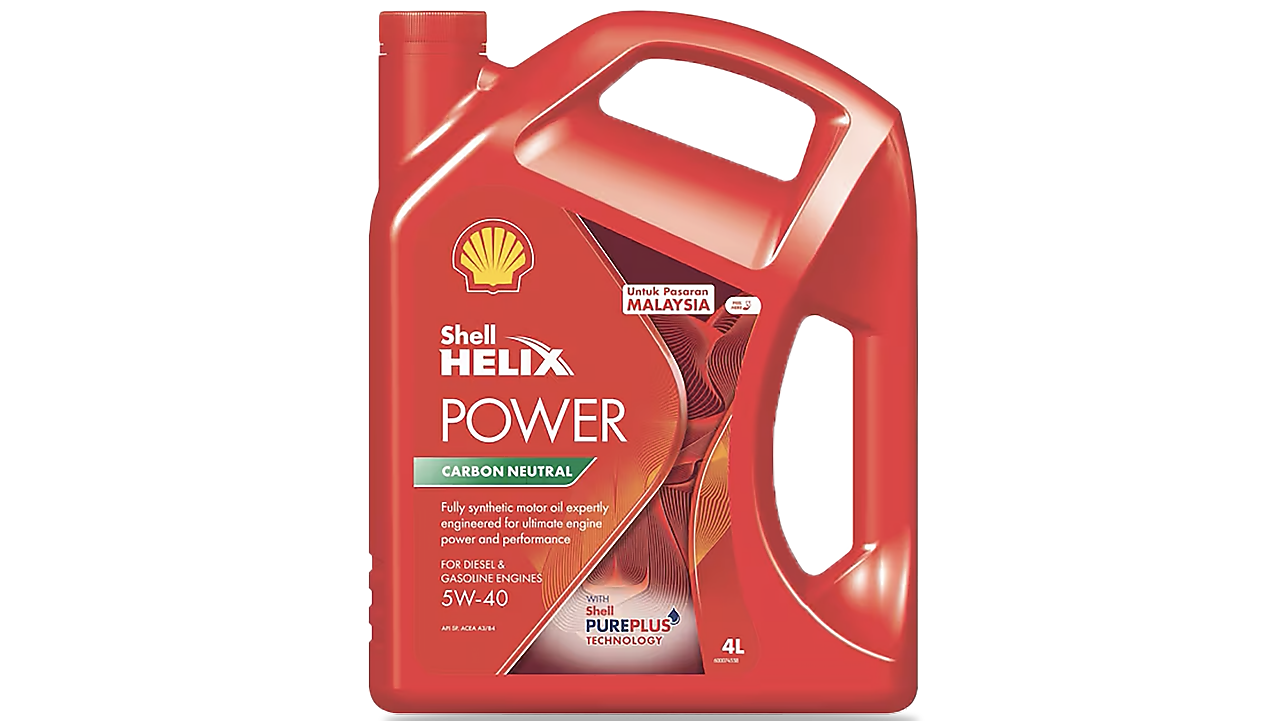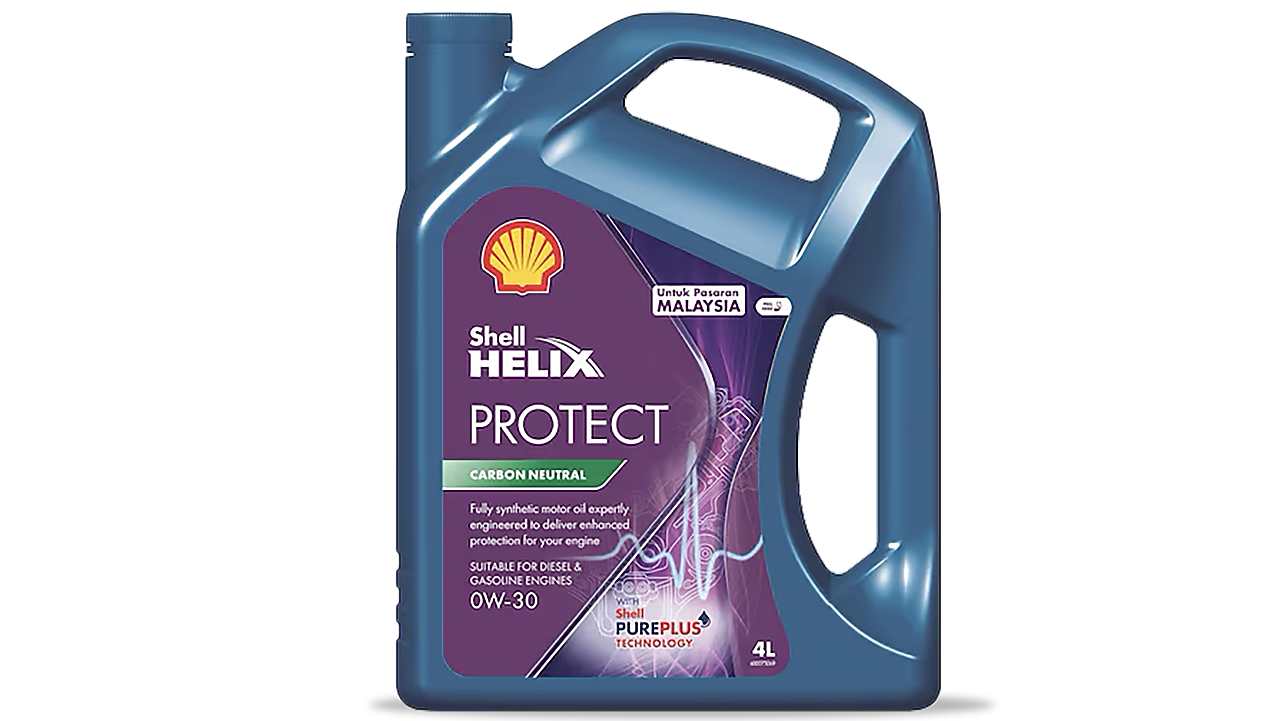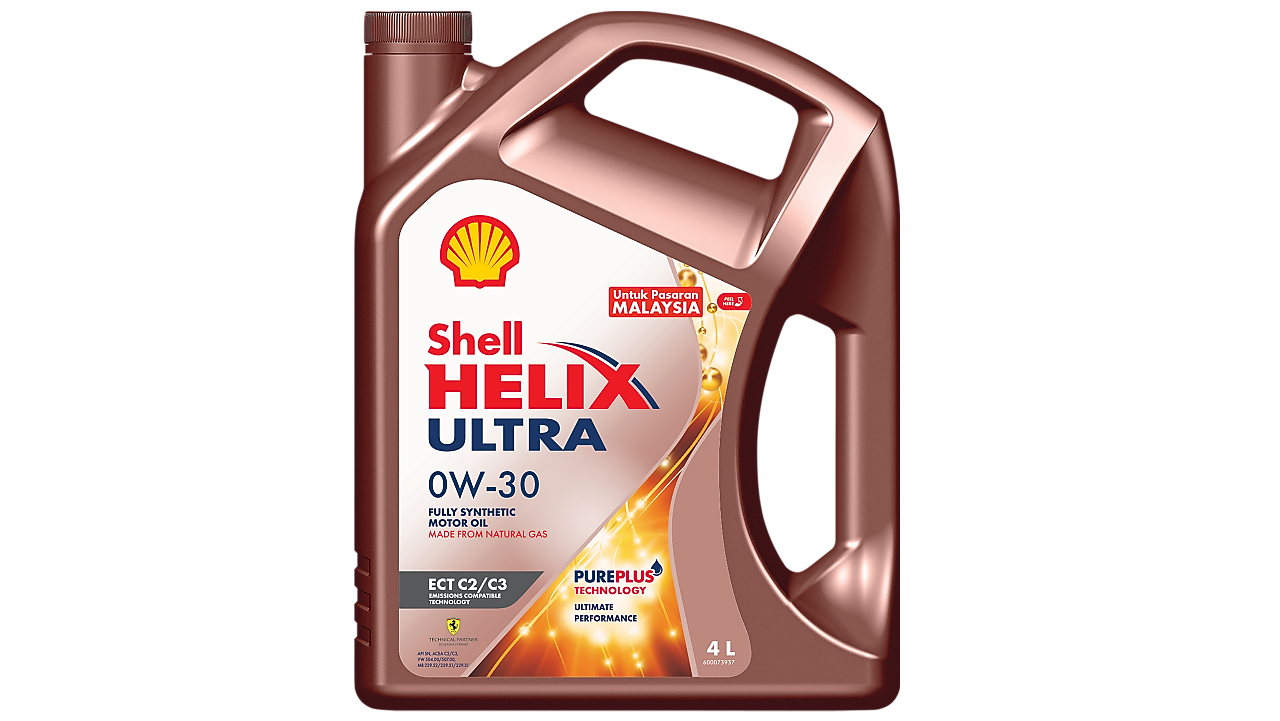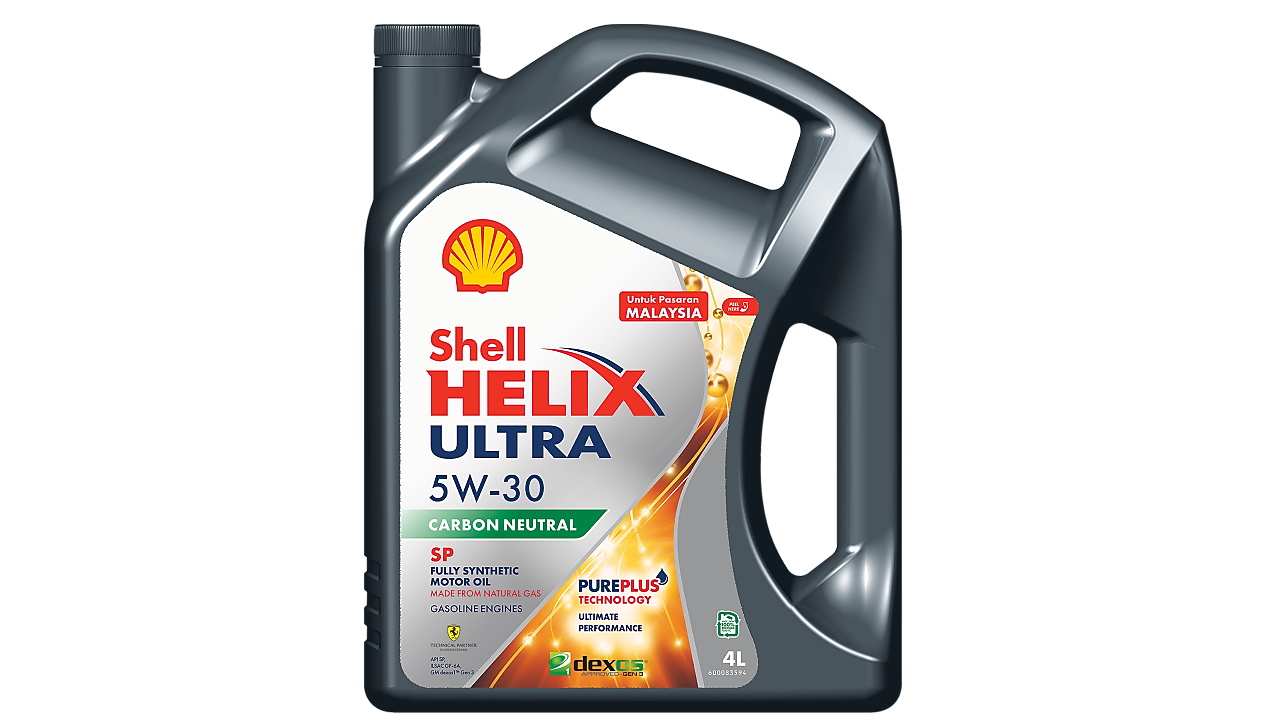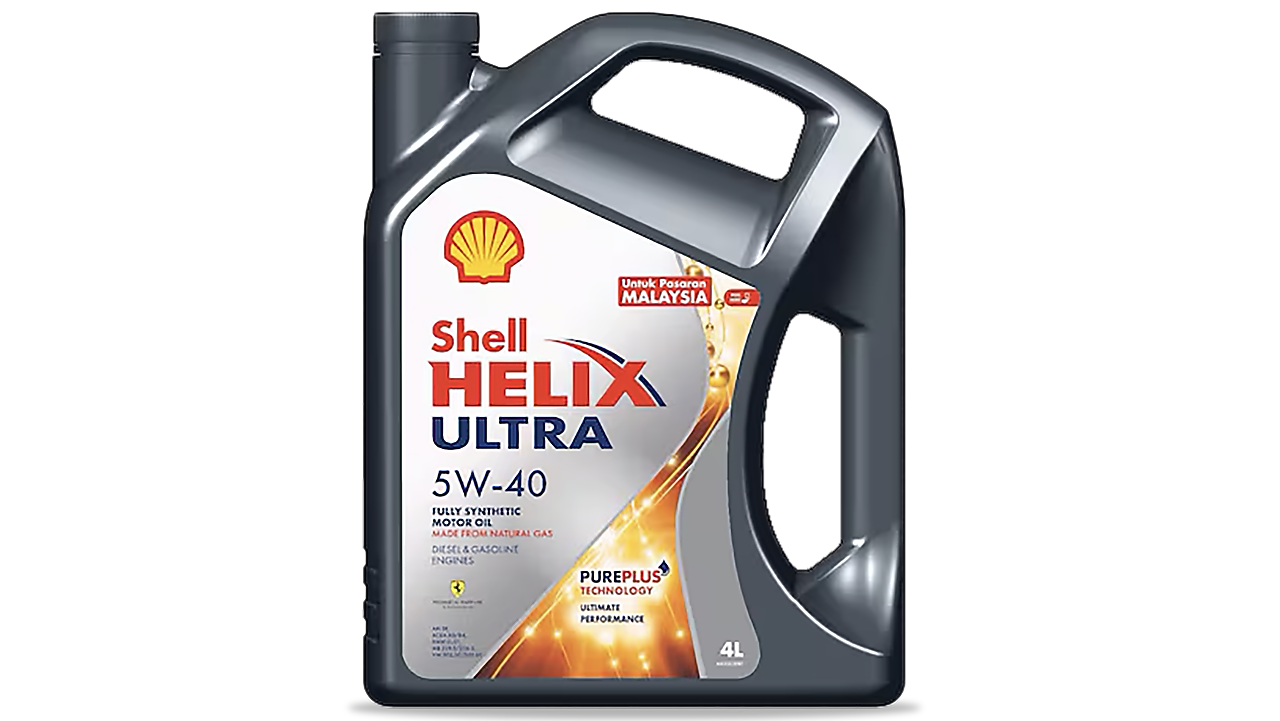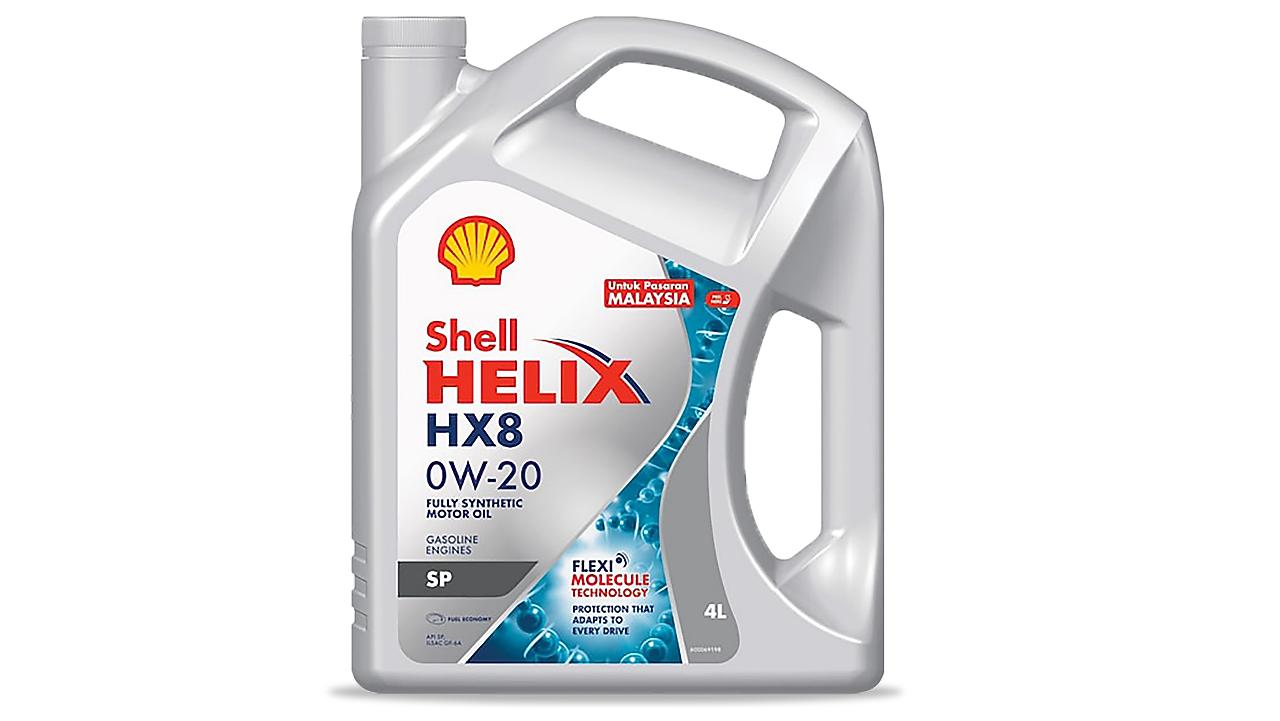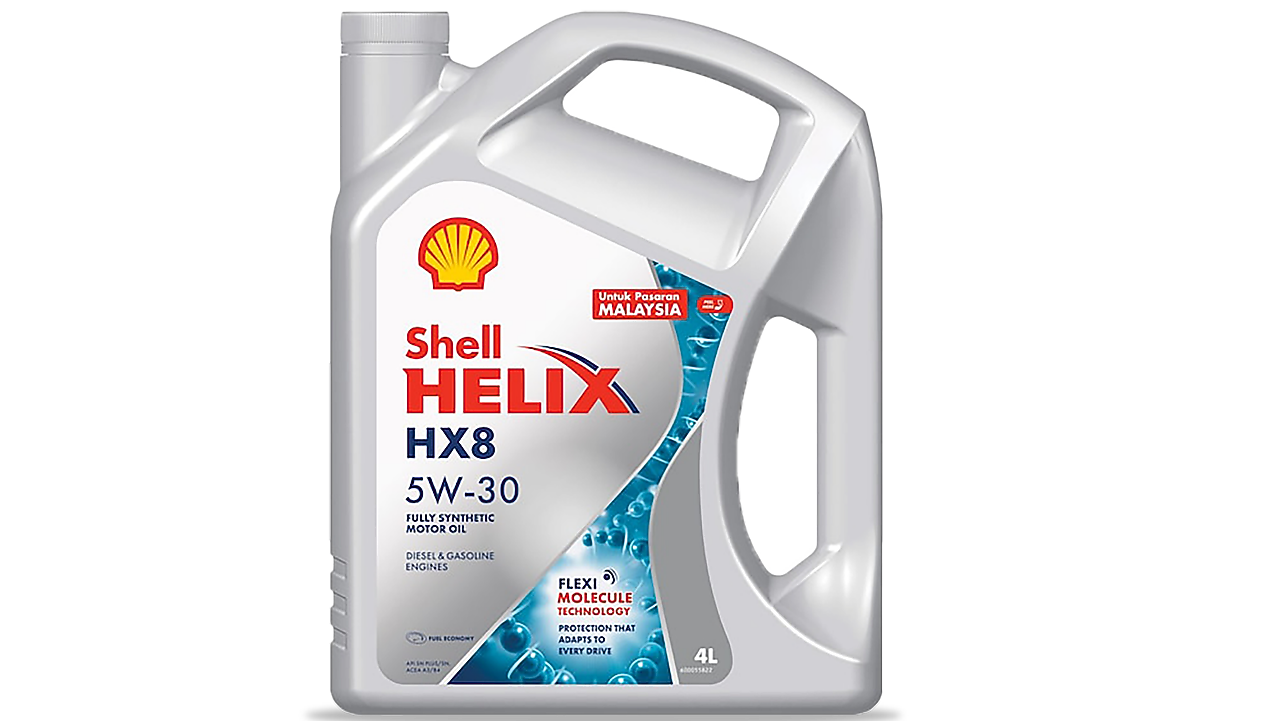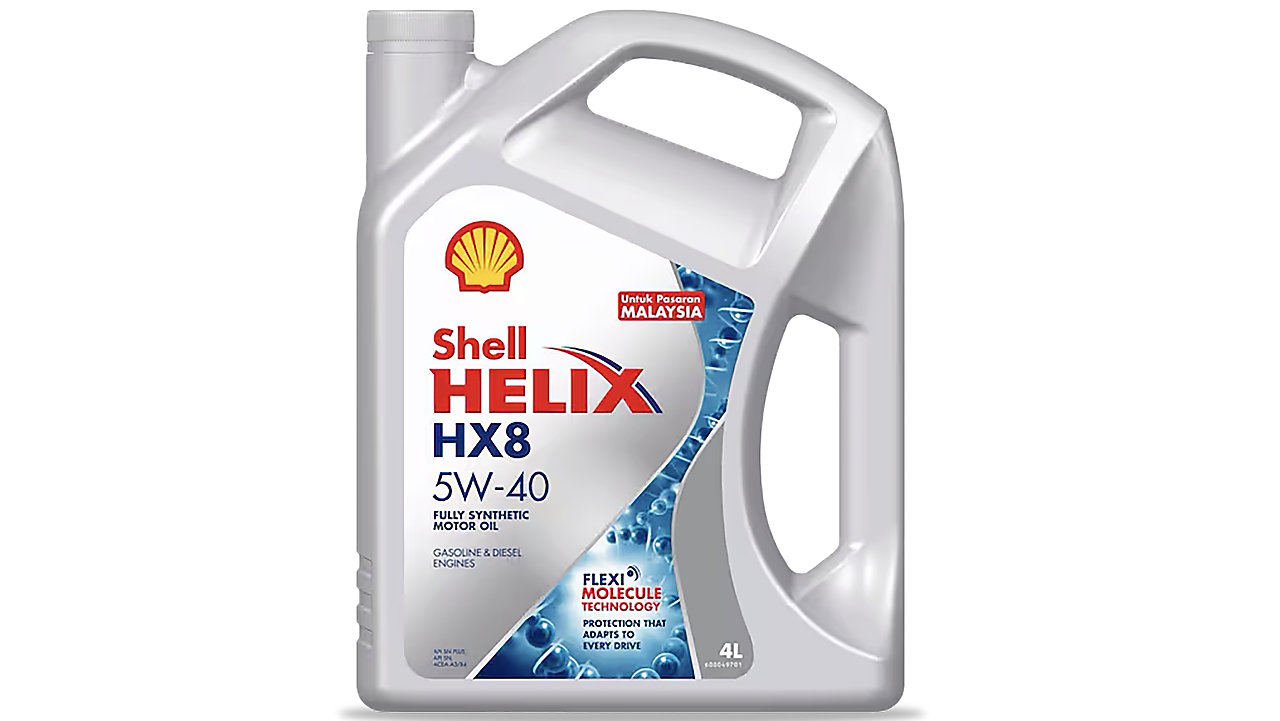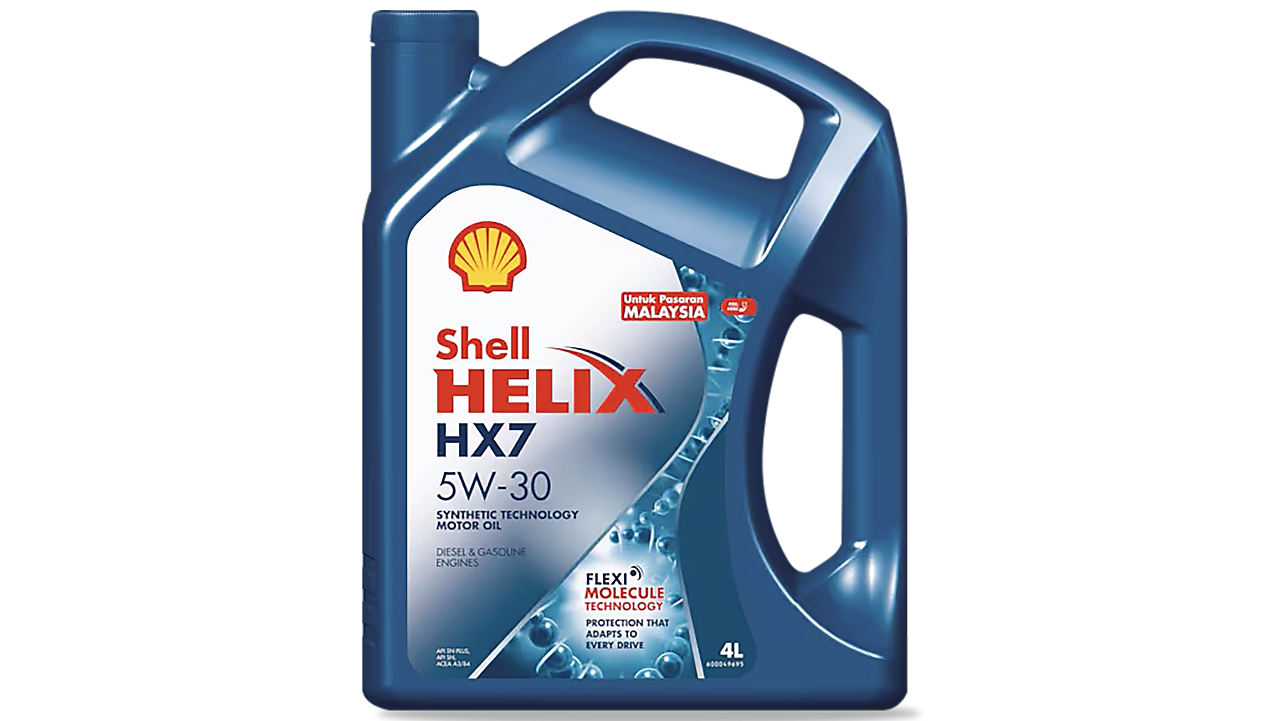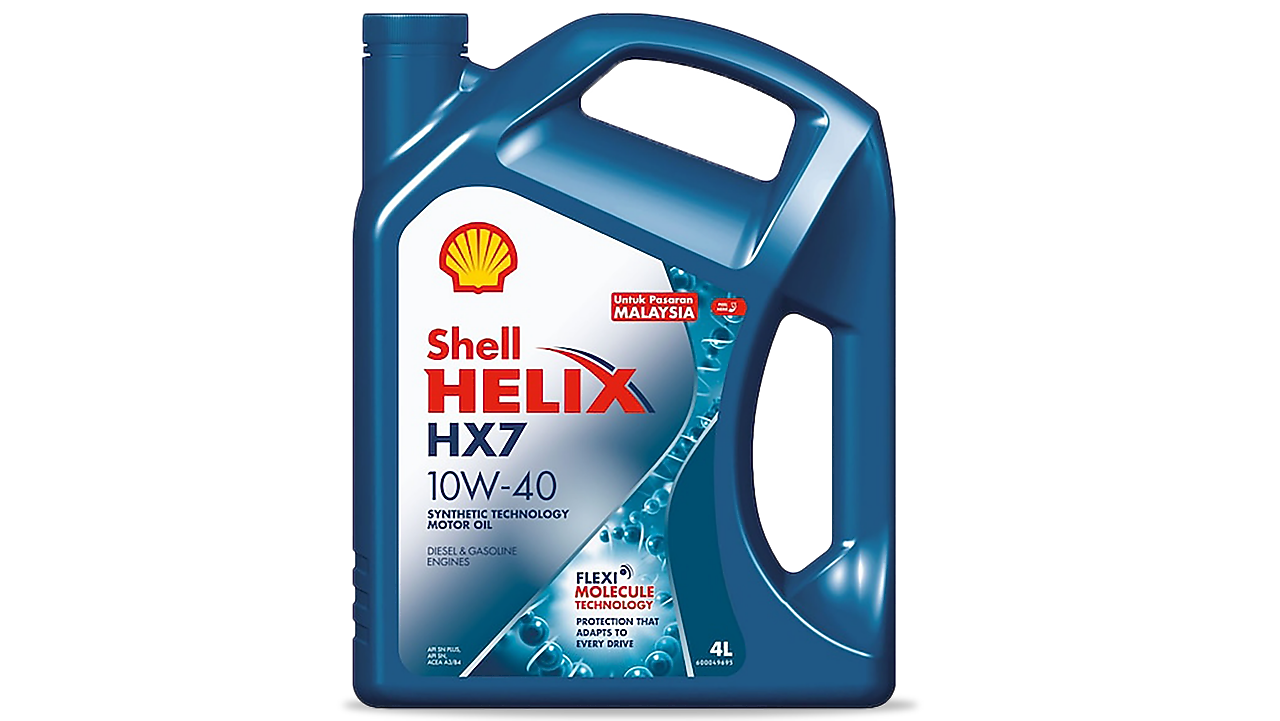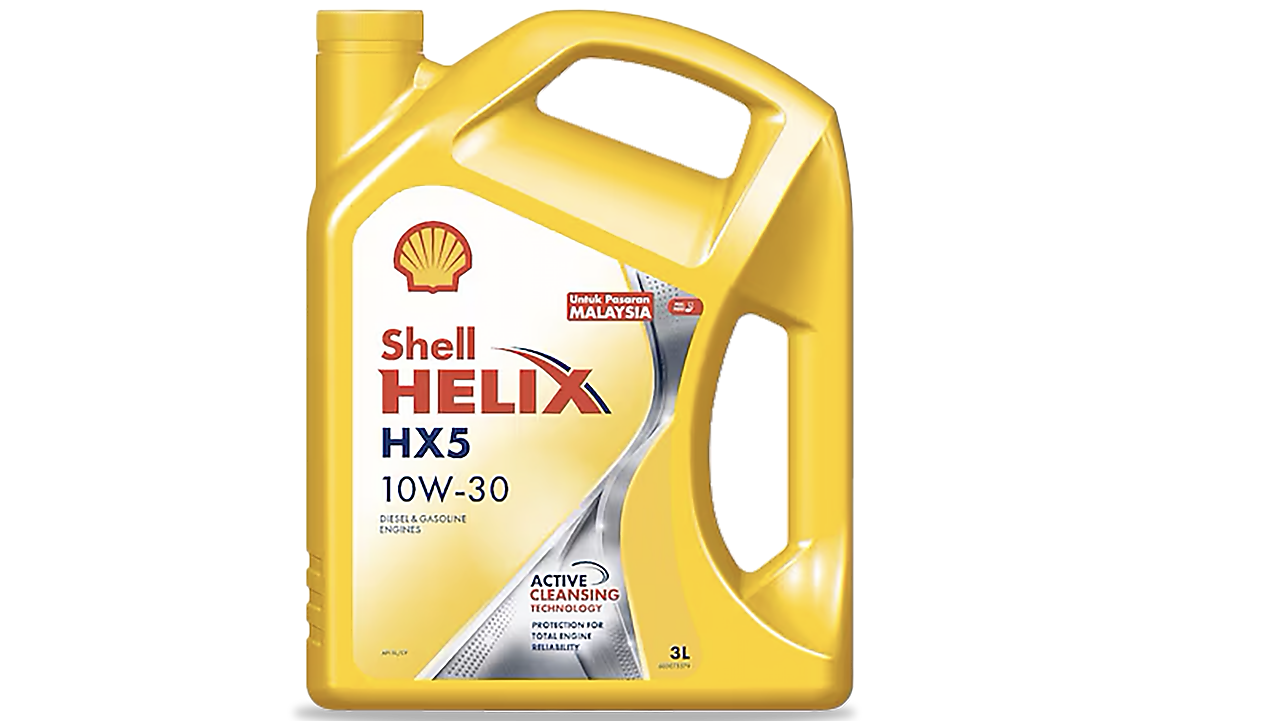
Shell Helix
Car engine lubricant with complete protection for maximum performance!
Superior protection against wear and corrosion
Helps extend engine life & neutralises corrosive combustion acids.
Formulation that saves fuel consumption
Low friction & low viscosity formulation.
Best protection against vehicle engine residue
The only lubricant that keeps vehicle engines clean.
Superior Active Cleansing Technology
Cleans deposits that can interfere with performance from the engine.

Confused about choosing the right oil for your vehicle?
Don't worry, we are ready to help with our professional Shell oil team!

Frequently Asked Questions (F.A.Q)
Here are frequently asked questions about Shell oil products.
How does the engine/motor oil protect my car engine?
How does the engine/motor oil protect my car engine?
- By helping to keep it clean – Engine oils like Shell Helix helps prevent sludge and other deposits from hindering engine operation until your next oil change.
- By reducing friction and wear - Engine oils like Shell Helix reduces friction, improve fuel economy and protect critical engine surfaces from wear during engine operation.
- By removing heat - Shell Helix oils carry heat away from hot areas, such as around the piston rings where temperatures can reach over 300°C, and redistribute it around the engine.
- By preventing corrosion and rust - Shell Helix oils are specially formulated to help prevent rust and corrosion that damage engine parts and shorten engine life.
By using the right engine oil, you will be able to maximize your car’s engine performance
What is car engine/motor oil made from?
What is car engine/motor oil made from?
Car Engine oils are made up of three types of ingredients:
- base oils*
- viscosity modifiers
- performance additives
They are carefully selected and skillfully blended to provide maximum engine protection.
*For Shell Helix Ultra range of products with PurePlus Technology is Shell’s premium multi-grade oil for everyday driving environment. Our revolutionary synthetic motor oil is made from natural gas, not from crude oil like other synthetics and designed to give you the ultimate performance you need to Drive On. It is born 99.5% pure designed for ultimate engine performance.
The PurePlus Technology creates base oils with stronger molecular bonds^, enabling Shell Helix Ultra 0W Fully Synthetic Motor Oils to provide long-lasting engine performance
^Based on paraffinic hydrocarbon content and significantly higher level of iso-paraffins compared to typical Group ll & lll base oils
What is Mineral vs Synthetic engine/motor oil?
What is Mineral vs Synthetic engine/motor oil?
There are no industry standards that define “Mineral” and “Synthetic” engine oils. Mineral engine oils are made from crude oil that is less processed or refined, it has inherent limitation to cope with more severe engine condition and operation. While Synthetic engine oils may not use crude oil as the source and are more refined.
For Shell Helix Ultra range of products with PurePlus Technology is Shell’s premium multi-grade oil for everyday driving environment. Our revolutionary synthetic motor oil is made from natural gas, not crude oil like other synthetics and designed to give you the ultimate performance you need to Drive On. It is born 99.5% pure designed for ultimate engine performance.
The PurePlus Technology creates base oils with stronger molecular bonds^, enabling Shell Helix Ultra 0W Fully Synthetic Motor Oils to provide long-lasting engine performance
^Based on paraffinic hydrocarbon content and significantly higher level of iso-paraffins compared to typical Group ll & lll base oils
What is Fully Synthetic vs Semi Synthetic engine/motor oil?
What is Fully Synthetic vs Semi Synthetic engine/motor oil?
Fully Synthetic engine oils may not use crude oil as the source and are more refined. While Semi Synthetic engine oils are made from a mixture of Mineral & Synthetic base oils.
What is Fully Synthetic engine/motor oil?
What is Fully Synthetic engine/motor oil?
A fully synthetic motor oil can help to provide long last engine performance and protection. Shell Helix Ultra fully synthetic motor oil made from natural gas, is formulated through a revolutionary gas-to-liquid process that converts the natural gas into a pure base oil with stronger molecular bonds. Shell Helix Ultra also provides up to 58% better resistance to oil degradation* and on average 70% better piston deposit control in high temperatures during severe industry engine tests**. Put simply, this means that by using Shell Helix Ultra, you will have peace of mind, knowing that you are optimising your engine to the fullest and ensuring you that you have lasting engine protection, even in extreme temperatures so that you can always drive on*.
*Based on ACEA DV6C engine test results compared with ACEA A3/B4 specification.
**Based on DV6C (CEC L-106-16) and OM646LA bio test (CEC L-104-16) results compared with ACEA C5 specification SAE 0W-20.
Why should I upgrade to a fully synthetic engine/motor oil?
Why should I upgrade to a fully synthetic engine/motor oil?
Many new cars come with synthetic oil straight from the factory, the engine makers understand the valuable protection afforded them by using full synthetic motor oils. Engine oils like Shell Helix Ultra are designed for optimum engine performance and protection, to take better care of your engine. Many modern vehicles require this level of protection and older vehicles will benefit from the added protection, performance, and fuel economy these oils can bring.
How do engine/motor oils helps your engine perform?
How do engine/motor oils helps your engine perform?
Motor oil is the ‘life-blood’ of your car. That’s why it is so important to understand and choose the right motor oil to keep the engine in prime condition. By choosing a synthetic motor oil, such as Shell Helix Ultra, you are providing your engine with long lasting performance and protection, meaning you can always enjoy the drive, no matter how extreme. Shell Helix Ultra is designed for extreme temperatures, meaning it provides longer lasting engine protection in hot temperatures and up to 3X faster motor oil flow at low temperatures for easier starting and quicker engine warmup*. As well as this, it has low viscosity, low-friction formulations, which can result in up to 3.3% greater fuel economy** .
*Compared with SAE J300 limit based on ASTM D4684
**Based on the ACEA M 111 Fuel Economy results compared with the industry reference oil
How often should I change car engine/motor oil and is it important to do this?
How often should I change car engine/motor oil and is it important to do this?
Changing your car engine oil regularly helps provide the optimal performance and protection for your engine. Ask your vehicle manufacturer or check your owner’s handbook to see how often you should change your oil and filter as it can sometimes vary.
How should I dispose of used car engine/motor oil?
How should I dispose of used car engine/motor oil?
It’s never a good idea to pour oil down the drain, so instead:
If you prefer a Mechanic to change the engine oil for you:
- The car servicing workshop would typically dispose the used oil in a safe manner on your behalf.
If you prefer to change the engine oil yourself:
- You can also take your used oil to an official oil-disposal or recycling bank
- Some places that may provide this service include the store where the fresh oil was purchased, a car workshop or a municipal recycling centre.
Do drivers really need to worry about using synthetic engine/motor oils if they have their car serviced regularly?
Do drivers really need to worry about using synthetic engine/motor oils if they have their car serviced regularly?
We always recommend you follow your vehicle owner’s manual for servicing intervals and to discuss the motor oil used with your mechanic, ensuring that it is best suited to the needs of your vehicle.
How do I ensure my engine is performing at its best?
How do I ensure my engine is performing at its best?
Along with servicing your engine according to your vehicle owner’s manual, it is important to ensure you are using the right motor oil for your engine as this helps protect your engine and maintain its performance.
Does using a synthetic engine/motor oil save you money?
Does using a synthetic engine/motor oil save you money?
Using a synthetic motor oil is an investment into your engine and its protection and performance. Shell Helix Ultra also has low-viscosity and low-friction formulations, which can result in up to 3.3% greater fuel economy*. Shell Helix Ultra is also competitively priced.
*Based on ACEA M 111 fuel economy results compared with the industry reference oil
How often do I change my car engine/motor oil?
How often do I change my car engine/motor oil?
We always recommend you follow your vehicle owner’s manual for changing your motor oil.
Will I really notice the difference if I don’t make frequent engine/motor oil changes for my car?
Will I really notice the difference if I don’t make frequent engine/motor oil changes for my car?
Frequent oil changes help keep car engine surfaces clean, so your engine can perform at its optimum.
Delaying oil changes may allow deposits to form that can affect power and performance; eventually causing serious engine damage, which might be far more costly to repair.
Can I keep topping up my car engine/motor oil?
Can I keep topping up my car engine/motor oil?
If you find the frequent need to top up your oil, you may consider using a Shell Helix high mileage car engine oil. These oils are designed to reduce oil top up and provide extra protection for car engines showing signs of wear and tear.
Why is the choice of car engine/motor oil so important?
Why is the choice of car engine/motor oil so important?
Think of oil as the lifeblood of your car. If the wrong kind is used, your engine is at risk of extra wear and tear, or even blockages that could lead to engine seizure.
Using Shell Helix gives you that peace of mind to drive with confidence. You'll get long-lasting engine performance and superior protection for your car even against extreme conditions*.
*According to the Helix Ultra 0W-20 field trial results run by independent 3ʳᵈ party in 2021.
Why is a car engine/motor oil’s ability to cleanse important?
Why is a car engine/motor oil’s ability to cleanse important?
Think of oil as the lifeblood of your car. If deposits gather inside the engine, it will affect the oil circulation and may lead to premature engine damage.
Making sure that the engine oil’s ability to clean the engine components is essential to keeping the engine in tip top condition.
Shell Helix engine oils are designed to clean and protect engines, providing ultimate engine performance whatever your driving challenges.
Synthetic engine/motor oil is not compatible with conventional engine/motor oil.
Synthetic engine/motor oil is not compatible with conventional engine/motor oil.
This is not true. For example, motor oil labelled “synthetic blend” already has synthetic oil and conventional oil mixed together.
Black oil is dirty oil and must be changed.
Black oil is dirty oil and must be changed.
This is not true. Motor oil darkens due to oxidation and chemical reactions that occur when the oil is being used. Always follow Original Equipment Manufacturer (OEM) oil drain intervals found in your owner’s manual to judge when to change the oil for your car.
Synthetic engine/motor oil cannot be used to “break in” an engine.
Synthetic engine/motor oil cannot be used to “break in” an engine.
This is not true. Synthetic oil may be used for the “break-in” period and throughout the engine life. Many race car teams use synthetic oil to “break in” their engines, and many engines are factory-filled with synthetic engine oil.
Are aftermarket oil additives beneficial?
Are aftermarket oil additives beneficial?
No. High-quality motor oils, such as Shell Helix Ultra range, already contain carefully balanced additives for optimal performance.
Synthetic engine/motor oil will make seals in older engines leak.
Synthetic engine/motor oil will make seals in older engines leak.
Synthetic oil will not cause seals to leak.
Why is it important to use the right viscosity?
Why is it important to use the right viscosity?
Your engine was designed to use a specific oil viscosity in order to lubricate and protect engine components. If you use oil that is too thin, you may run into wear issues. If the oil is too thick, it may decrease engine efficiency, affecting fuel economy and heat transfer property. Always follow the vehicle owner’s manual to determine the correct SAE viscosity grade for your engine.
If I use good synthetic engine/motor oil, can I change my oil less frequently?
If I use good synthetic engine/motor oil, can I change my oil less frequently?
Lubricant suppliers do not set OEM oil drain intervals. These recommendations belong to the engine manufacturers. The point of using good synthetic oil is to take better care of the engine and reduce deposit formation, which may reduce power, performance, and fuel economy, rather than extending the drain interval.
What causes sludge?
What causes sludge?
Using a low quality engine oil, neglecting to change your oil, and maintenance issues can lead to sludge forming in your engine. Every time your engine is running, by-products from combustion contaminate your engine oil. If the contaminants build up in the oil, they can settle and create sludge and deposits in the engine.
Is engine oil and motor oil referring to the same thing?
Is engine oil and motor oil referring to the same thing?
Yes, it is referring to the oil for the engine/motor. The term is used interchangeability interchangeably
Why is it important to change the car engine/motor oil?
Why is it important to change the car engine/motor oil?
Changing your oil according to your vehicle manufacturer recommendations can help with:
Maximize performance and protection of your car engine, reduce noxious emissions, and avoiding costly repairs.
